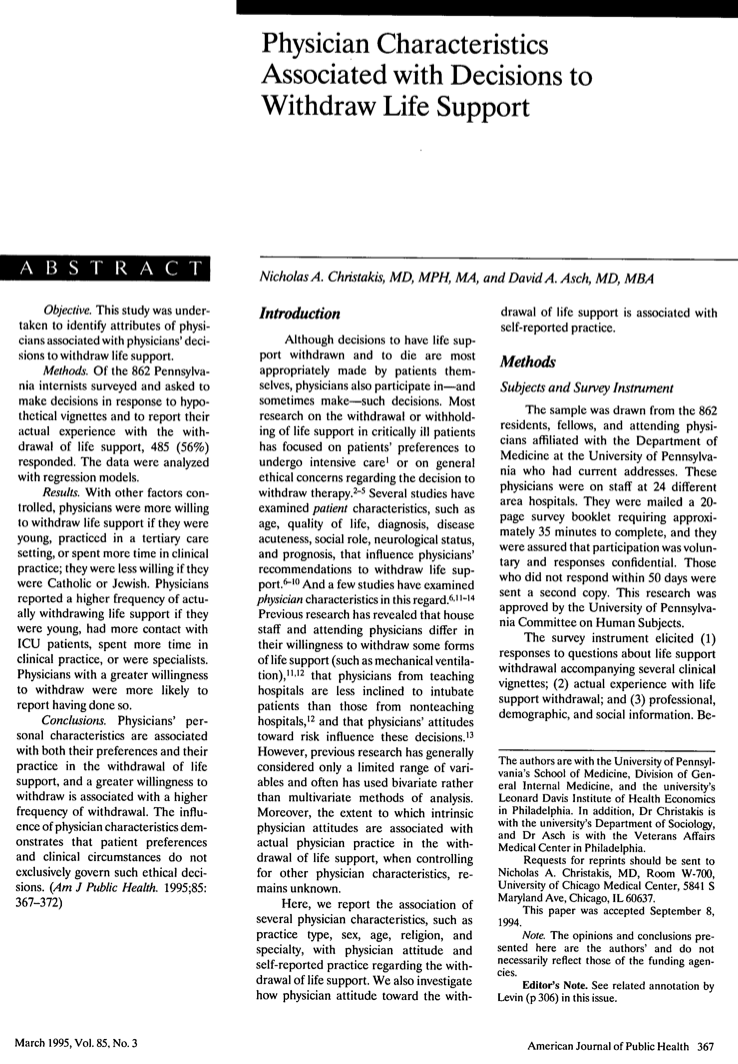
Physician Characteristics Associated with Decisions to Withdraw Life Support
Abstract
This study was undertaken to identify attributes of physicians associated with physicians' decisions to withdraw life support. Of the 862 Pennsylvania internists surveyed and asked to make decisions in response to hypothetical vignettes and to report their actual experience with the withdrawal of life support, 485 (56%) responded. The data were analyzed with regression models. With other factors controlled, physicians were more willing to withdraw life support if they were young, practiced in a tertiary care setting, or spent more time in clinical practice; they were less willing if they were Catholic or Jewish. Physicians reported a higher frequency of actually withdrawing life support if they were young, had more contact with ICU patients, spent more time in clinical practice, or were specialists. Physicians with a greater willingness to withdraw were more likely to report having done so. Physicians' personal characteristics are associated with both their preferences and their practice in the withdrawal of life support, and a greater willingness to withdraw is associated with a higher frequency of withdrawal. The influence of physician characteristics demonstrated that patient preferences and clinical circumstances do not exclusively govern such ethical decisions.
Citation:
N.A. Christakis and D.A. Asch, "Physician Characteristics Associated with Decisions to Withdraw Life Support" American Journal of Public Health, 85(3): 367-372 (March 1995)